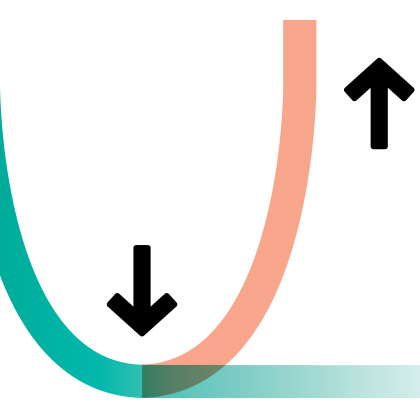
Just what is it that causes our immune systems to break down as we grow older, putting us at increased risk for disease — and for more severe illness — than when we were younger?
This is the question that has guided the research of Johns Hopkins geriatrician Sean Leng over the past two decades, as he has pushed to better understand the basic biological and physiological changes that occur as our immune system fails with age, a process known as immunosenescence.
“When we’re in our 20s or 30s, we can get a case of the flu and shake it off pretty easily, while getting the flu as an 80-year-old can quickly lead to severe illness, like pneumonia, and even death,” says Leng, who was recently named a CIM Charles Salisbury Family Scholar. “In fact,” he notes, “despite vaccine efforts, seasonal flu and its complications are the fourth leading cause of death for older Americans.
“Or think about infectious diseases like chicken pox that we typically get as children,” Leng says. “Once the chicken pox subsides, the varicella-zoster virus that causes it remains dormant in our nerve cells. Then, in some older people, that dormant virus gets reactivated late in life to cause painful shingles and neuralgia. But we don’t really know how or why.”
Leng’s work in immunosenescence took on critical importance when the COVID-19 pandemic struck and it became painfully obvious that older people are at highest risk of severe disease. While those over age 65 make up just 16% of the U.S. population, they have accounted for 75% of deaths from COVID-19, according to the U.S. Centers for Disease Control and Prevention.
“When it comes to older people, everything having to do with the immune system gets more complicated, and there is evidence that the immune system ‘remodels’ itself as we age,” says Leng.
To get a better handle on that remodeling process, Leng recently launched the Center on Aging and Immune Remodeling at Johns Hopkins. The center is made possible by funding from the Howard and Abby Milstein Foundation in New York, a five-year, $8.2 million grant from the National Institutes of Health, funding from the Department of Medicine at Johns Hopkins, and funding from the CIM-supported Johns Hopkins Human Aging Project (through a scholarship provided by the Salisbury Family Foundation.)
In order to understand how our immune system evolves as we age, taking the long view is crucial. Toward that end, Leng and his team will build on a path-breaking longitudinal study he launched in 2014, which has followed a cohort of older people (75-plus) in Baltimore/Washington to study their response to the annual flu vaccine. Leng and his team have annually taken blood samples from study participants before and after administering the flu vaccination and have used cutting edge technology to examine their individual immune response.
“Since the flu strain changes every year, doing a clinical trial of vaccine response in any one year is not enough. We need to follow older people over many seasons, to see how their immune response may wane over time and why some people are more susceptible to breakthrough flu infection,” Leng explains. “Twenty of the people in our current study have participated since the start, and one participant was 103 at the time of her death in 2019.”
With funding from the new Center on Aging and Immune Remodeling, Leng and his team, who collaborate with Sabra Klein, a senior faculty member in the Department of Molecular Microbiology and Immunology at the Bloomberg School of Public Health, will be able to expand to study immune responses to diseases other than flu, including COVID-19. They will also broaden their research on aging and immune remodeling beyond vaccination studies alone.
Leng did not set out to pursue a career in the biology of aging. He attended Peking Medical College to study clinical immunology and subsequently pursued a Ph.D. in research from Texas A&M University and a research fellowship at Yale to further his experience in virology.
But a visit back home to China set him on a new path. His dad had begun to suffer from cognitive decline and didn’t recognize him, possibly as a result of Parkinson’s disease. Leng started studying geriatrics textbooks, searching for a way to help his father. He couldn’t find the answers he wanted, “but it got me interested in aging and geriatrics,” he says.
In the years since then, Leng has become an international leader in geriatrics research and clinical care. He helped launch an academic geriatrics program at Peking Union Medical College, training more than 20 providers who came to Johns Hopkins (including internal medicine physicians, a physiatrist, nurses and more) from 2006 to 2011, in order to fully staff the new clinical geriatrics program there. He’s also taught advanced training courses to hospital geriatrics leaders across China — leaders who have gone on to develop regional geriatrics training courses at their hospitals. And he serves as president of the Milstein Medical Asian American Partnership Foundation, whose mission is to improve world health through partnerships and by funding fellowships and research project awards.
Looking ahead, Leng is excited about finding answers to key questions surrounding the basic biological and physiological changes related to aging and our immune system. “The ultimate goal,” he says, “is to find ways we can intervene to make our immune systems more robust as we get older, to stave off infections, and avoid decline for as long as possible.”
Don Willett May 16th, 2022
Posted In:

Around the hallways of Johns Hopkins Hospital, cardiologist Stephen C. Achuff was legendary for the deep relationships he formed with patients, his mentorship of trainees and his insightful leadership as director of adult cardiology clinical programs.
Now retired, Achuff remains active as ever, but there’s a standing date on his calendar that he tries never to miss: CIM Seminars, held on Tuesday afternoons at 4 p.m. via Zoom.
At each session, a keynote researcher whose Johns Hopkins work is supported by the Center for Innovative Medicine takes 30 to 40 minutes to share the scope and progress of that work in an accessible TED Talk-like way. Subjects range widely: from the genetics of aging, to the well-being of incarcerated pregnant women, to the importance of humanizing medical care. Then the floor is open for questions, and a lively back-and-forth ensues.
“As a retired clinical doctor, these subjects on a wide range of topics are of great interest to me,” says Achuff. “They keep me up to date and they are challenging to me because they often introduce me to new knowledge — such as the latest on chronic Lyme disease or artificial intelligence. Sure, I’d heard about artificial intelligence, but until the CIM seminar, I really didn’t understand its potential for patient care.”
When CIM Director David Hellmann first launched the CIM Seminars series, the meetings were held in his office at Johns Hopkins Bayview. This limited participation to just 25 or 30 people — primarily fellow doctors with expertise and interest in the seminar topic. Once the COVID-19 pandemic hit, out of necessity for safety, Hellmann moved the seminar series online, which opened the door to vastly expand the list of invitees.
The CIM Seminars allow Hopkins’ leading doctors to engage in conversation with members of the public, who then go on to share what they learn with friends and family. — Stephen C. Achuff
“It’s been immensely gratifying to see how attendance has just taken off. We’ve gone from a few dozen people in my office to sometimes more than 200 or 250 people participating online,” says Hellmann. “And we’ve been able to invite a much broader array of participants, including patients, donors and former faculty members who want to stay connected to Johns Hopkins and informed about the latest research and findings in clinical care.”
Achuff, of course, falls into that latter category. And though he put a premium on face-to-face encounters with patients and colleagues throughout his career, he sees a real value in the Zoom format of the CIM Seminars.
“It’s terrific,” he says. “I much prefer being able to sit with a cup of coffee in our apartment in Baltimore, or our home at the beach, and think deeply as I listen. It takes you away from the hurly-burly of medicine and practice, which can be so stressful.”
Given the level of medical misinformation plaguing our society today, Achuff also thinks it’s critical to bring accurate health information out of the “ivory tower” of academic medicine and into the homes of non-scientists. The CIM Seminars, he notes, allow Hopkins’ leading doctors to engage in conversation with members of the public, who then go on to share what they learn with friends and family.
Says Hellmann, “I have been so gratified by the conversations that unfold during the question-and-answer part of the presentations. These exchanges are a wonderful example of the way the Center for Innovative Medicine is fulfilling its mission of advancing medicine as a public trust.”
Don Willett May 16th, 2022
Posted In:
Former Osler medical resident Rochelle Walensky, M.D. ’95, director of the U.S. Centers for Disease Control and Prevention, delivered the 19th annual Miller Lecture on on May 17.
Walensky, who assumed the top spot at the CDC in early 2021 in the midst of the COVID-19 pandemic, had previously been chief of the Division of Infectious Diseases at Massachusetts General Hospital, where she’d been on the front lines of testing and treating deadly diseases for decades. In her talk, Walensky discussed “Decision-making in the Time of Omicron.”
In other news, past Miller lecturer Katrina Armstrong, M.D. ’91, also a former Osler resident, assumed a new role as CEO of Columbia University Irving Medical Center, executive vice president for health and biomedical sciences, and dean of the faculties of health sciences and medicine on March 1. Armstrong had previously served as chair of the Department of Medicine and physician-in-chief at Massachusetts General Hospital.
Don Willett May 16th, 2022
Posted In: